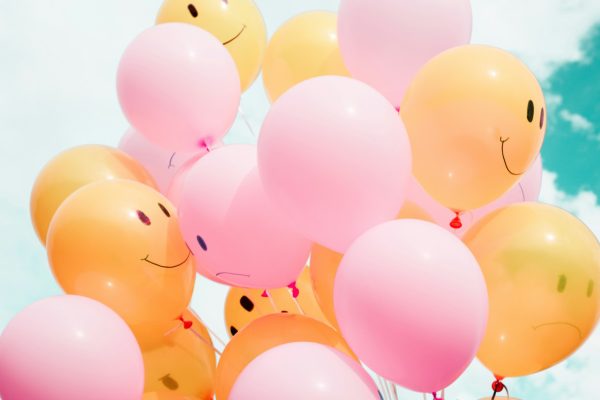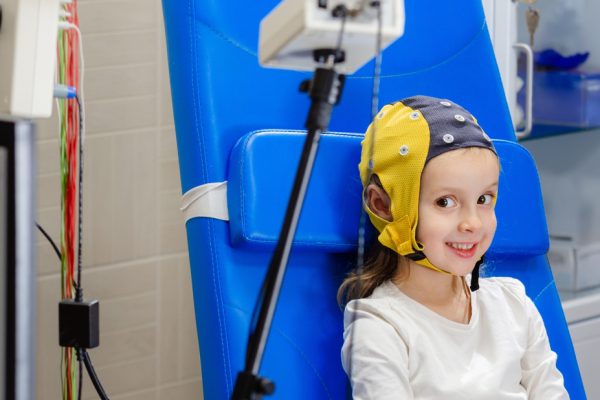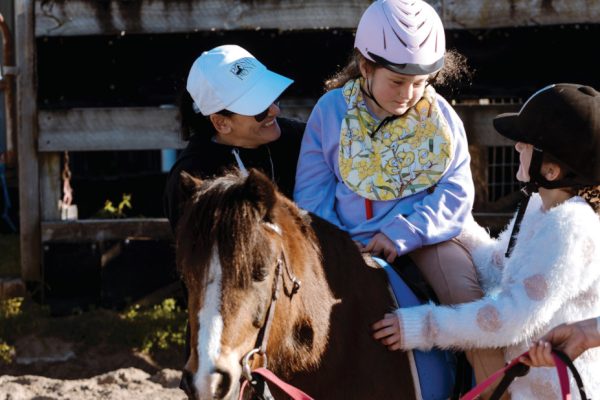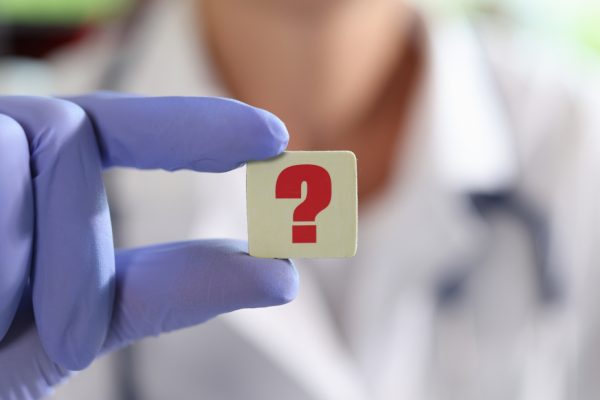
Where to seek help: Finding mental health support for your child
The following information is taken from a factsheet written by our friends at ACD who are based in Victoria. A lot of the resources are relevant for all states or are nationwide services, but some are specifically for residents of Victoria. Services for those living in other states are included at the end of this article.
Dealing with mental health issues and disability can be challenging for both you and your child. Sometimes, symptoms of anxiety and depression are overlooked in children with disability. It’s important to trust your instincts and seek assistance if your child experiences unexplained mood or behavioural changes.
There are a variety of services to help improve your child’s mental health.
GENERAL PRACTITIONER
Your child’s GP is the best place to start. They can check if there is something physical affecting your child. Pain or illness can cause behaviour changes.
The GP can monitor their condition and prescribe appropriate medication. They can also write a mental health care plan which helps cover the cost of a counsellor or psychologist. If necessary, your GP can refer your child to a psychiatrist.
COMMUNITY HEALTH & WELLBEING CENTRES
Community health services across Victoria offer mental health support, including counselling and psychology. These are usually free or at a reduced cost. In Victoria you can search for services near you at – health.vic.gov.au/community-health/community-health-directory.
Additionally, there are new Mental Health and Wellbeing Connect centres that are open across Victoria. It is a free service. They help connect families with support. Find out more at betterhealth.vic.gov.au/mental-health-and-wellbeing-connect.
SCHOOL MENTAL HEALTH PRACTITIONERS
Mental health practitioners are in every secondary and specialist school. They might be a psychologist, mental health nurse, social worker, or occupational therapist. They can talk to you or your child about what support is available locally.
HEADSPACE
Headspace is for young people aged between 12 and 25. Their centres have doctors, health workers and mental health professionals. They can help with different issues including anxiety, stress, bullying, depression, or problems with family and friends.
There are centres across regional Victoria and metropolitan Melbourne, and around the rest of Australia.
You can chat online with a qualified professional, visit a centre, or just read their information on mental health topics. Go to headspace.org.au.
SEEING A PSYCHOLOGIST OR COUNSELLOR
If you or your child qualifies for a mental health care plan, you will be entitled to Medicare rebates for up to 10 individual psychological appointments and up to 10 group allied mental health services each year. A rebate means that there is some cost covered by Medicare and some cost you will need to pay.
You can’t get Medicare rebates for all the sessions at once. After your first six appointments, you must see your doctor again for a mental health plan review. They can then consider whether you need a referral for further sessions.
If you have private health insurance, you may be able to access some mental health services through your insurer. However, it is important to remember that not all mental health services are covered by private health insurance.
Finding support that suits the needs of you and your family may take time and there may be waiting lists.
Families should be actively involved in supporting strategies or plans at home and making sure that other important people in your child’s life are involved.
It’s important to make sure the counsellor or psychologist can support the communication needs of your child with autism, intellectual disability, or communication disorder. Check that the professional your child will be seeing has experience and knowledge of your child’s disability. Seek referrals from friends, colleagues, doctors, teachers, or your paediatrician, and ask why they are recommended.
You can search for psychologists in your area on websites such as Australian Psychological Society – psychology.org.au/find-a-psychologist
Counsellors should have professional registration. You can check or search for counsellors via this website – arcapregister.com.au
Like other therapies, counselling or psychology can’t work in isolation. Families should be actively involved in supporting strategies or plans at home and making sure that other important people in your child’s life are involved.
What does mental health support look like?
TALKING THERAPY
Talking therapy or counselling is where your child can talk about their situation with a trained counsellor (usually one-to- one.) Counsellors don’t often give advice; they support the child to talk through the situation and come up with their own solutions.
MEDICATION
In some cases, your child’s GP or psychiatrist may suggest medication to assist with conditions like anxiety or depression (psychologists cannot prescribe medication). Medication can help relieve symptoms, but it’s important to be aware of possible side effects. Have a discussion with your child’s doctor or psychiatrist about any concerns or queries you may have regarding the medication.
SAFETY PLAN
For some young people, it will be important to set up a safety plan. This plan should be created with input from your child. It’s there to help your child when they are in crisis and perhaps at risk of suicidal behaviour. It can include a written list of coping strategies, resources, and emergency contact numbers.
SERIOUS MENTAL HEALTH ISSUES
In Victoria, Child and Youth Mental Health Services (CYMHS) supports children and young people with serious mental health issues:
The full, original version of this article has a list of contacts for various Vic regions and suburbs – acd.org.au/finding- mental-health-support-for-your-child
Online or telephone support
Kids Helpline
Free confidential 24-hour telephone and online counselling for young people aged between 5 and 18.
Call 1800 55 1800 | kidshelpline.com.au
Beyondblue
24-hour telephone support and links to local services. Call 1300 22 4636 | beyondblue.org.au
Lifeline
24-hour national telephone crisis counselling service and online counselling. Call 13 11 14 | lifeline.org.au
Healthy Mind
An online Easy Read tool designed to help people with intellectual disability (ID) to recognise and regulate their thoughts and feelings. blackdoginstitute.org.au/resources- support/digital-tools-apps/healthy-mind
The Suicide Response Project – Autism
A resource for autistic people and their families about suicide and how to help. It highlights the risk factors and includes information about what to say and do if you feel your child is at risk of suicide. suicideresponseproject.com
IF YOU ARE WORRIED YOUR CHILD IS SUICIDAL
Caring for someone at risk of suicide is a traumatic experience for everyone, but you are not alone so please seek support.
If you are concerned your child is in immediate danger of suicide, take them to hospital or call 000.
MENTAL HEALTH RESOURCES IN OTHER STATES
The following is a selection of resources you may find useful. Your GP or paediatrician will also be able to suggest other sources of support.
NORTHERN TERRITORY
A list of non-government organisations which support young people with emerging or present mental health issues in the Northern Territory (NT) nt.gov.au/wellbeing/mental-health/mental-health-support-for-young-people
NORTHERN TERRITORY MENTAL HEALTH LINE: 1800 682 288
The NT Community website has a list of community-based mental health services available in urban, rural or remote areas of the NT.
ntcommunity.org.au/services- category/mental-health-and-suicide-prevention
QUEENSLAND
1300 MH CALL (1300 642 255) is a confidential mental health telephone triage service that provides the first point of contact to public mental health services for Queenslanders.
ACCESS CHILD & YOUTH MENTAL HEALTH SERVICES IN QUEENSLAND
childrens.health.qld.gov.au/services/mental-health
There is also an acute response team available at 07 3068 2555. It’s available 24/7 for children, young people, their families, and carers.
ACT
CHILD & YOUTH MENTAL HEALTH SERVICES
canberrahealthservices.act.gov.au/ services-and-clinics/child-and-youth-mental-health
MINDMAP
A MindMap Youth Navigator can connect young ACT residents aged between 6 and 24 years to local mental health services and resources. mindmap.act.gov.au
CANBERRA HEAD TO HEALTH
For over 18s, this is a free, commonwealth funded service that is available to all those who live, work, or play within the ACT. The centre provides both telephone-based and face-to-face support. canberraheadtohealth.com.au
NSW
MENTAL HEALTH LINE
The 1800 011 511 Mental Health Line is NSW Health’s 24/7 statewide phone service which links people with NSW Health mental health services.
MENTAL HEALTH INTELLECTUAL DISABILITY HUB
A service that helps children and teens under 18 years old with intellectual or developmental disability. schn.health.nsw.gov.au/mental-health-intellectual-disability-hub
CHILD AND ADOLESCENT MENTAL HEALTH SERVICES (CAMHS)
health.nsw.gov.au/mentalhealth/services/children
SOUTH AUSTRALIA
CHILD AND ADOLESCENT MENTAL HEALTH SERVICE (CAMHS)
A free community-based tertiary mental health service provided through the Women & Children’s Health Network across South Australia, providing care to those with severe and/or complex mental health needs. wchn.sa.gov.au/our-network/camhs
YOUTH MENTAL HEALTH SERVICES
Young people aged 16 to 24 can access Youth Mental Health Services 24 hours a day, 7 days a week by calling 13 14 65.
WESTERN AUSTRALIA
CAMHS CRISIS CONNECT
For urgent mental health help or advice for children and young people, call CAMHS Crisis Connect on 1800 048 636, 24 hours a day, 7 days a week. cahs.health.wa.gov.au/Our- services/Mental-Health/CAMHS-Crisis-Connect
COMMUNITY CAMHS
Mental health assessment, case management and multidisciplinary intervention for children and young people experiencing significant mental health challenges cahs.health.wa.gov.au/Our-services/Mental-Health/Community-CAMHS






